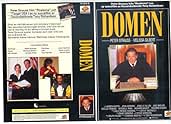Tony Richardson's first foray into television since his early days with the BBC, PENALTY PHASE features Peter Strauss as Kenneth Hoffman, running for re-election as a superior court judge while presiding at a media displayed trial of a murderer of 17 young women, Nolan Eshelman (Richard Chaves). The film nearly begins with the reading of "guilty on all counts" for Eshelman, and thereupon Hoffman must decide upon a just sentence from the eponymous penalty phase. Complicating matters is a series of anonymous letters to Judge Hoffman which infer that Eshelman was the victim of an illegal search by police detectives, and that evidence used in the trial was recovered from him before a search warrant was sworn out. Hoffman's opponent in the election is the prosecuting district attorney during the trial, Susan Jansen (Jonelle Allen), who takes full advantage of media efforts to popularize an image of Hoffman as a starry eyed liberal, soft on criminals. As Hoffman pursues his investigation of the anonymous allegations, he discovers a wider range of corruption among his confreres than he expects, lending more nettlesome circumstance to what he discerns will be a widening range of critical decision-making on his part. After having excavated more dross than he might wish, Hoffman must decide to either give up his robe by electoral defeat, or yield his principles to those with whom he finds scant sympathy. The scenario is by Gale Patrick Hickman, an attorney and a former presiding judge in Orange County, California who, in addition to the film's important cardinal theme, includes several sub-plots which serve to heighten the work's element of suspense. The storyline is arranged as a battle between the zeitgeist of the Earl Warren era and its successor period, when Warren Court emphases have been maligned. Peter Strauss gives a finely nuanced performance, leaving the viewer with a raft of open concepts as to his ultimate actions and rationale: a splendidly executed part. The supporting cast gives nothing except its best, thanks to fine direction, especially Karen Austin and Melissa Gilbert as Hoffman's past and current loves, Millie Perkins, Art LaFleur and Richard Bright. An excellent score is in place by veteran composer Ralph Burns, while cinematographer Steve Yaconelli and editor David Simmons are obviously in ongoing rapport with Richardson's point of view. In sum, Richardson, Strauss and company have provided, in this little discussed motion picture, a cohesive and piquant narrative of a man who must deal with an engulfing series of personal crises, yet while retaining a sense of integrity.

























